The decline of Western civilisation
The rise of the European caste system
When we look at human civilization throughout history and across the globe, most humans have been born in some kind of caste system. The most notable features of a caste system are endogamy (marriage only within the same group) and the hereditary transmission of occupation, social status and political influence.
In its early stages, a caste system typically has only three castes. The first caste is a priest caste. They are believed to have exclusive access to sacred knowledge and define the social norms and rules for all members of a community. The second caste is a warrior caste. They are trained from an early age onward in various military skills and have the exclusive duty to protect the community from any threat. The third caste is a caste of commoners, which consists of pretty much everyone else.
At later stages, specialization leads to the develop of sub-castes that sometimes become a caste of their own. Bureaucrats, artisans, merchants and pariahs typically don’t fit well into one of the three main castes and in some cultures become a caste of its own.
Centralisation of power


At the dawn of the Renaissance, European power had increasingly become dominated by two aristocratic houses. One was the House of Habsburg that continuously occupied the throne of the Holy Roman Empire between 1438 and 1740 and also produced kings of Bohemia, England, Germany, Hungary, Croatia, Ireland, Portugal, Spain, as well as rulers of several Dutch and Italian countries.




The other house was the House of Medici. Their bank was the largest in Europe during the 15th century, seeing the Medici gain political power in Florence. While officially they remained citizens rather than monarchs, the Medici produced four Popes of the Catholic Church — Pope Leo X (1513–1521), Pope Clement VII (1523–1534), Pope Pius IV (1559–1565), and Pope Leo XI (1605); two regent queens of France — Catherine de’ Medici (1547–1559) and Marie de’ Medici (1600–1610); and, in 1531, the family became hereditary Dukes of Florence. The Medici Bank was one of the most prosperous and most respected institutions in Europe. There are some estimates that the Medici family were the wealthiest family in Europe for a period of time. From this base, they acquired political power initially in Florence and later in wider Italy and Europe.
The fall of the European caste system
As time progressed, a new caste of merchants, bankers and bureaucrats developed to help maintain and expand the empires of both aristocratic houses. The increased dependence of these and other aristocrats on the services of this new caste, allowed them to increase their wealth and power. This in turn resulted in the gradual decline of both houses, with the House of Medici eventually dissolving in 1737 and House of Habsburg in 1780.
Out of the new caste of merchants, bankers and bureaucrats, various houses competed with the weakened aristocrats to fill the power vacuum created by the decline of the two aristocratic houses. Elite clubs like masonic lodges of reading societies brought together men of affluence who lacked an aristocratic title and were fed up with the incompetence of the weakened aristocrats.
In spite its elitist nature, Freemasonry calls “Liberty”, “Equality”, “Fraternity”, “Tolerance” and “Humanity” its five keystones, which spread across the Western world and would fuel two revolutions by the end of the 18th century: the American revolution in 1776 and the French revolution in 1789. These revolutions effectively destroyed the traditional European caste system, replacing it by a new kind of hierarchy based only on the private ownership of capital.
Not only was the slogan “Liberté, égalité, fraternité” explicitly used during the French Revolution, it is still used as an official slogan of the French government.
The king is dead, long live the king!

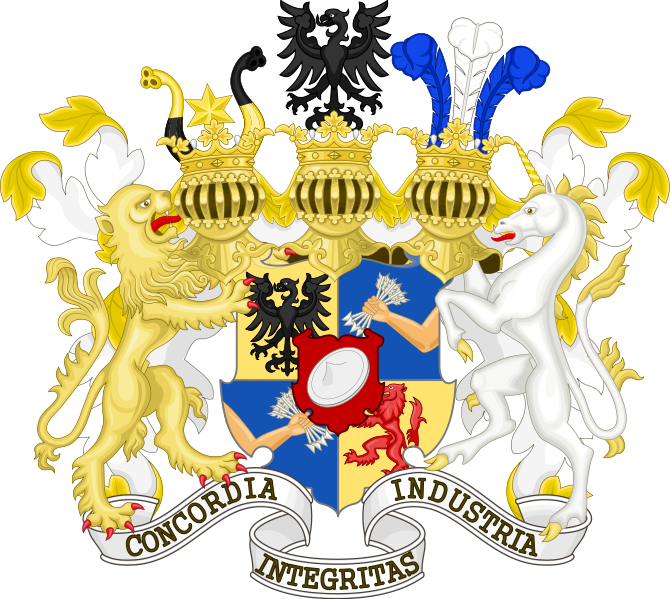
In this new hierarchy, one house would soon stand out among all others. That house was the House of Rothschild. The Rothschild family is a family descending from Mayer Amschel Rothschild, a court Jew to the Landgraves of Hesse-Kassel, in the Free City of Frankfurt, who established his banking business in the 1760s. Unlike most previous court Jews, Rothschild managed to bequeath his wealth, and established an international banking dynasty through his five sons.


one of numerous manors, castles, and palaces owned by the Rothschild family
During the 19th century, the Rothschild family had by far the largest private fortune in the world. Their wealth and power easily surpassed that of the House of Habsburg and the House of Medici combined. Officially, they lost most of their wealth and power during the 20th century, but many believe that the family has just become better at marking their fortune from prying eyes, using straw men to funnel their money through various corporations as well as non-profit organisations.
Whether the Rothschilds really did just get better at hiding their funds or whether they did in fact lost much of it during the 20th century, the most important people in politics and business today still can’t do anything without approval by the Rothschild family.


For example, Jacob Rothschild, 4th Baron Rothschild, is a member of a British branch of the Rothschild family. He maintains strong personal and business links with Henry Kissinger. His country estate has been a regular venue for visiting heads of state including Presidents Ronald Reagan and Bill Clinton. Margaret Thatcher received French President François Mitterrand there at a summit in 1990. He hosted the European Economic Round Table conference in 2002, attended by such figures as James Wolfensohn, former president of the World Bank, Nicky Oppenheimer, Warren Buffett and Arnold Schwarzenegger. In 2003 Rothschild came under scrutiny when Russian oil industrialist Mikhail Khodorkovsky’s shares in YUKOS passed to him under a deal they concluded prior to Khodorkovsky’s arrest. And that’s just a tip of the iceberg.
The Messianic agenda

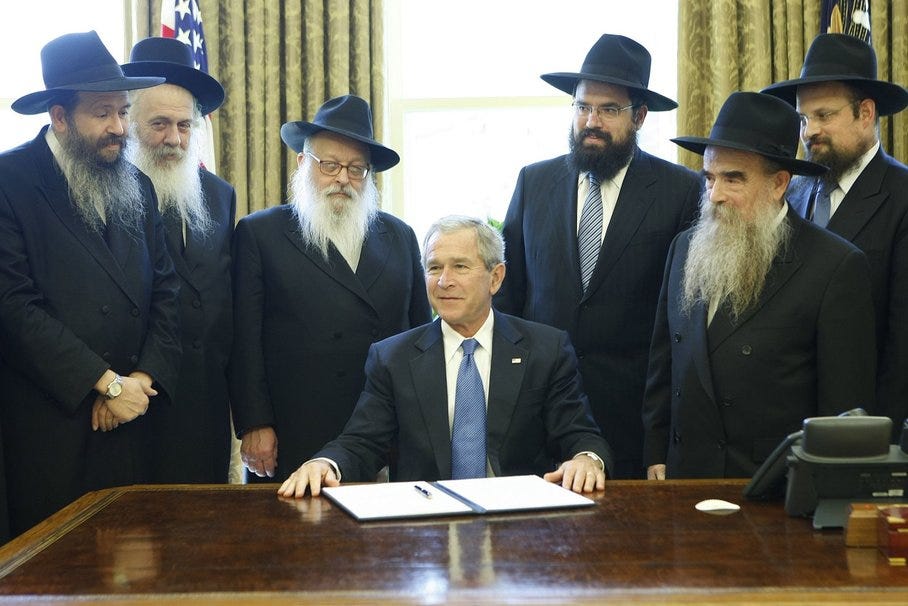
According to Jewish tradition, the Jewish Messiah is to bring the world into the Messianic Age: an era of universal peace and brotherhood on the earth, with a Jewish king ruling the world. Since time immemorial, Jews have tried to prepare the world for the Messianic age to this very day by various means. The most influential among such organisations is B’nai B’rith.


Dating back to 1843, B’nai B’rith is the oldest Jewish “service organization” in the world. Besides working openly as agents of Zionism, they have cells that operate covertly as “secret societies” within “secret societies”. As such, B’nai B’rith replaced the Bavarian Illuminati, which was exposed during the 18th century as having formented both the French and American revolution. An excellent source on the role of the masons and Illuminati in these revolutions is the 1797 work “Proofs of a Conspiracy against all the Religions and Governments of Europe” by physicist, mathematician and philosopher John Robison.
Membership of B’nai B’rith is exclusively Jewish. Its openly professed aim is “uniting and elevating the Sons of Abraham”. It is best known for having founded the Anti-Defamation League (formerly known as the “Anti-Defamation League of B’nai B’rith”). As the propaganda arm of B’nai B’rith, the ADL describes itself as “the nation’s premier civil rights/human relations agency”, stating that it “fights anti-Semitism and all forms of bigotry, defends democratic ideals and protects civil rights for all,” doing so through “information, education, legislation, and advocacy.” What that means, is that they actively fight against anyone who could undermine B’nai B’rith’s agenda by indoctrinating the masses and demonizing dissident voices.


Influential “secret societies” dominated by B’nai B’rith include were Oddfellows and Freemasons. In later decades, these were complemented by organisations like Rotary International, Skull and Bones and the Bohemian Club. These organisations use mostly Philo-Semitic “Shabbos goy” as agents for the B’nai B’rith agenda. This was discovered during early the 20th century, when masonic lodges became illegal in several countries and their archives were confiscated.
The goal of the covert agenda within “secret societies” is the establishment and development of a covert aristocracy operating behind the scenes of an illusionary pseudo-egalitarian “democracy”, with the Jewish Rothschild banking dynasty at the top of the hierarchy. This, they believe, will bring the world into the Messianic age.
The goal of the open (Zionist) agenda is the creation and maintenance of the state of Israel as a spiritual capital for this covert aristocracy, but also as a refuge for any member of the B’nai B’rith network who’s threatened by those he’s operating against.
All that has been done on earth against “the noble,” “the powerful,” “the masters,” “the rulers,” fades into nothing compared with what the Jews have done against them; the Jews, that priestly people, who in opposing their enemies and conquerors were ultimately satisfied with nothing less than a radical revaluation of their enemies’ values, that is to say, an act of the most spiritual revenge.
— Friedrich Nietzsche
Why are the Jews hated? It is the inevitable result of their laws; they either have to conquer everybody or be hated by the whole human race . . .
— Voltaire
The Jews have practiced usury since the time of Moses, and oppressed the other peoples. Meanwhile, the Christians were only rarely usurers, falling into disgrace when they did so. We ought to ban the Jews from commerce because they abuse it . . . The evils of the Jews do not stem from individuals but from the fundamental nature of this people
— Napoleon Bonaparte, 1806, speech before the Council of State
The new aristocracy
By the end of the 19th century, the rule of the Rothschild dynasty was almost complete in most of the Western world. While men like Cecil Rhodes, Alfred Milner, ‘Colonel’ Edward Mandell House, Andrew Carnegie, Cornelius Vanderbilt, John Davison Rockefeller, John Pierpont Morgan and Ernest Oppenheimer publicly controlled most of the North-American and Western-European economy, behind them was always Rothschild money.
Since I entered politics, I have chiefly had men’s views confided to me privately. Some of the biggest men in the United States, in the field of commerce and manufacture, are afraid of somebody, are afraid of something. They know that there is a power somewhere so organized, so subtle, so watchful, so interlocked, so complete, so pervasive, that they had better not speak above their breath when they speak in condemnation of it.
They know that America is not a place of which it can be said, as it used to be, that a man may choose his own calling and pursue it just as far as his abilities enable him to pursue it; because to-day, if he enters certain fields, there are organizations which will use means against him that will prevent his building up a business which they do not want to have built up; organizations that will see to it that the ground is cut from under him and the markets shut against him. For if he begins to sell to certain retail dealers, to any retail dealers, the monopoly will refuse to sell to those dealers, and those dealers, afraid, will not buy the new man’s wares.
[ … ]
The government, which was designed for the people, has got into the hands of the bosses and their employers, the special interests. An invisible empire has been set up above the forms of democracy. — Woodrow Wilson , The New Freedom (1913)
Karl Marx




With the rise of the shadow aristocracy, conditions for the working class were getting worse and worse. Not only were women forced to leave their households and join their husbands in the factories, but they even were forced to send their children to maintain a standard of bare subsistence. The working class started to revolt, demanding better wages, voting rights and other ways to improve their quality of life.
As the son of a Rabbi, Karl Marx was very familiar with the Messianic agenda. In spite of what most people might think, Marx and the banking elite have always been on the same side. The ideology that would be named after him was, in fact, actually just a refinement of the egalitarian teachings perpetuated already by the “secret societies” mentioned hereabove, using them as a model for social control.
Karl Marx was a proponent of two principles, the first applied to socialism and the second to an advanced communist society: “To each according to his contribution” and “from each according to their ability; to each according to their need”. Marx’s position is often confused or conflated with distributive egalitarianism, in which only the goods and services resulting from production are distributed according to a notional equality; but in reality Marx eschewed the entire concept of equality as abstract and bourgeois in nature, focusing instead on more concrete principles such as opposition to exploitation on materialist and economic logic.
Himself a Jew, Marx has around him, in London and France, but especially in Germany, a multitude of more or less clever, intriguing, mobile, speculating Jews, such as Jews are every where: commercial or banking agents, writers, politicians, correspondents for newspapers of all shades, with one foot in the bank, the other in the socialist movement, and with their behinds sitting on the German daily press — they have taken possession of all the newspapers — and you can imagine what kind of sickening literature they produce.
Now, this entire Jewish world, which forms a single profiteering sect, a people of bloodsuckers, a single gluttonnous parasite, closely and intimately united not only across national borders but across all differences of political opinion — this Jewish world today stands for the most part at the disposal of Marx and at the same time at the disposal of Rothschild. I am certain that Rothschild for his part greatly values the merits of Marx, and that Marx for his part feels instinctive attraction and great respect for Rothschild.
This may seem strange. What can there be in common between Communism and the large banks? Oh! The Communism of Marx seeks enormous centralization in the state, and where such exists, there must inevitably be a central state bank, and where such a bank exists, the parasitic Jewish nation, which. speculates on the work of the people, will always find a way to prevail ….
— Michael Bakunin, 1871, Personliche Beziehungen zu Marx
The two kinds of Marxism
The Mensheviks subscribed to an Orthodox Marxist view of social and economic development. They believed that socialism could not be achieved in Russia due to its backwards economic conditions. They believed it would need a bourgeois revolution similar to the French and American revolution, then and then go through a slow capitalist stage of development, again similar to the French and American approach.
Mensheviks believed true socialism was technically possible only after this long capitalist phase as they believe it was a necessary condition for the working class to develop the necessary consciousness required for a socialist revolution.

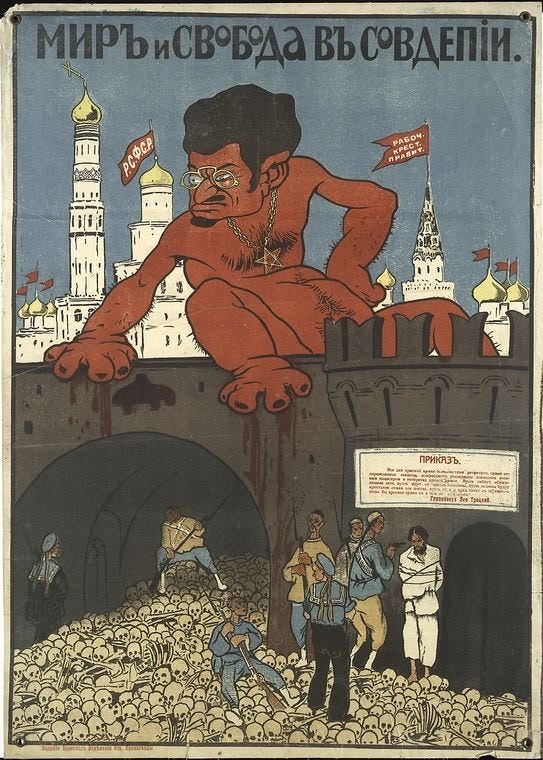
becomes a devil in this poster whose artist is
careful to point out Trotsky’s Jewish origins
Bolsheviks believed the capitalist state could and should be skipped. Instead, they proposed that a totalitarian Vanguard party should take control of Russia by means of a socialist revolution and use totalitarian means to enforce socialist principle onto the Russian populace. They believed that a combination of indoctrination and force was enough to transform Russia from feudal state to socialist state.
After the Bolsheviks gained control of Russia, Menshevik ideology became obselete in Russia. It was, however, still relevant in other parts of the world. As Menshevik ideology gained a foothold in Europe and North-America, it laid the foundations for a new ideology: that of the Frankfurt School.
International Jews
In violent opposition to all this sphere of Jewish effort rise the schemes of the International Jews. The adherents of this sinister confederacy are mostly men reared up among the unhappy populations of countries where Jews are persecuted on account of their race. Most, if not all, of them have forsaken the faith of their forefathers, and divorced from their minds all spiritual hopes of the next world.
This movement among the Jews is not new. From the days of Spartacus-Weishaupt to those of Karl Marx, and down to Trotsky (Russia), Bela Kun (Hungary), Rosa Luxembourg (Germany), and Emma Goldman (United States), this world-wide conspiracy for the overthrow of civilization and for the reconstitution of society on the basis of arrested development, of envious malevolence, and impossible equality, has been steadily growing. It played, as a modern writer, Mrs. Webster, has so ably shown, a definitely recognizable part in the tragedy of the French Revolution.
It has been the mainspring of every subversive movement during the Nineteenth Century; and now at last this band of extraordinary personalities from the underworld of the great cities of Europe and America have gripped the Russian people by the hair of their heads and have become practically the undisputed masters of that enormous empire.
Terrorist Jews
There is no need to exaggerate the part played in the creation of Bolshevism and in the actual bringing about of the Russian Revolution, by these international and for the most part atheistical Jews, it is certainly a very great one; it probably outweighs all others. With the notable exception of Lenin, the majority of the leading figures are Jews.
Moreover, the principal inspiration and driving power comes from the Jewish leaders. Thus Tchitcherin, a pure Russian, is eclipsed by his nominal subordinate Litvinoff, and the influence of Russians like Bukharin or Lunacharski cannot be compared with the power of Trotsky, or of Zinovieff, the Dictator of the Red Citadel (Petrograd) or of Krassin or Radek — all Jews. In the Soviet institutions the predominance of Jews is even more astonishing. And the prominent, if not indeed the principal, part in the system of terrorism applied by the Extraordinary Commissions for Combating Counter-Revolution has been taken by Jews, and in some notable cases by Jewesses.
The same evil prominence was obtained by Jews in the brief period of terror during which Bela Kun ruled in Hungary. The same phenomenon has been presented in Germany (especially in Bavaria), so far as this madness has been allowed to prey upon the temporary prostration of the German people. Although in all these countries there are many non-Jews every whit as bad as the worst of the Jewish revolutionaries, the part played by the latter in proportion to their numbers in the population is astonishing. — Winston Churchill , Zionism versus Bolshevism: A Struggle for the Soul of the Jewish People (1920)
The Frankfurt School
Frankfurt School theorists emphasized that Marx was attempting to create a new kind of critical analysis oriented toward the unity of theory and revolutionary practice rather than a new kind of positive science. Critique, in this Marxian sense, meant taking the ideology of a society — e.g. the belief in individual freedom or free market under capitalism — and critiquing it by comparing it with the social reality of that very society — e.g. social inequality and exploitation.
Frankfurt School critical theory centres principally on two works: Adorno and Horkheimer’s Dialectic of Enlightenment (1944) and Adorno’s Minima Moralia (1951). The authors wrote both works during the Institute’s exile in America. While retaining much of a Marxian analysis, in these works critical theory shifted its emphasis.
The critique of capitalism turned into a critique of Western civilization as a whole, making Marxist an even more powerful tool for the Messianic agenda. This new brand of Marxism provided not only means to control the masses but ways to destroy the social values underlying traditional Aristocratic society and therewith destabilize nearly every pillar of Western society step by step from within.
Psychoanalysis and crowd control


Early sociological publications like Gustave Le Bon’s “The Crowd: A Study of the Popular Mind” (1895) and Wilfred Trotter’s “Instincts of the Herd in Peace and War” (1916) provided the necessary insights for social engineers to develop revolutionary techniques that gave the new aristocrats unprecedented control. The most influential of these social engineers was Edward Bernays, who combined the ideas of Le Bon and Trotter with the psychoanalytical ideas of his uncle, Sigmund Freud. By the end of the ‘20s, control of the masses without their knowledge had become a real possibility.
The conscious and intelligent manipulation of the organized habits and opinions of the masses is an important element in democratic society. Those who manipulate this unseen mechanism of society constitute an invisible government which is the true ruling power of our country. We are governed, our minds are molded, our tastes formed, our ideas suggested, largely by men we have never heard of. This is a logical result of the way in which our democratic society is organized. Vast numbers of human beings must cooperate in this manner if they are to live together as a smoothly functioning society.
[ … ]
In almost every act of our lives, whether in the sphere of politics or business, in our social conduct or our ethical thinking, we are dominated by the relatively small number of persons [ … ] who understand the mental processes and social patterns of the masses. It is they who pull the wires that control the public mind, who harness old social forces and contrive new ways to bind and guide the world.
[ … ]
Propaganda is the executive arm of the invisible government.
[ … ]
If we understand the mechanism and motives of the group mind, it is now possible to control and regiment the masses according to our will without them knowing it.
— Edward Bernays , Propaganda (1928)
The merger of Marxism and Capitalism


The only major opposition to the Shadow government were the Fascist movements that started popping up everywhere in the West during the first half of the 20th century. This is especially true to the National-Socialist movement in Germany and other movements inspired by them. However, one World War and decades of propaganda have made these movements harmless since the 1940s.

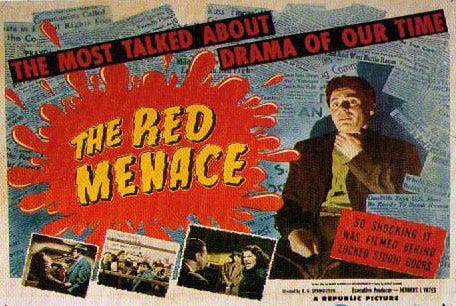



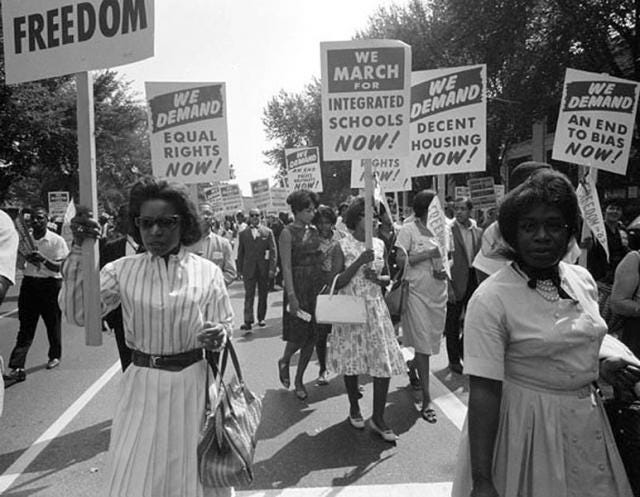
In February 1950, US senator Joseph McCarthy rose suddenly to national fame when he asserted in a speech that he had a list of “members of the Communist Party and members of a spy ring” who were employed in the State Department. This resulted in a new “Red Scare” and an obsession with Communist indoctrination known today as “McCarthyism”, was a widespread social and cultural phenomenon that affected all levels of society and was the source of a great deal of debate and conflict in the United States. Infamous are the Hollywood blacklist, associated with hearings conducted by the House Un-American Activities Committee (HUAC); and the various anti-communist activities of the Federal Bureau of Investigation (FBI) under Director J. Edgar Hoover.
Meanwhile in Europe, Capitalists and Marxists gradually overcame their differences. Marxist unions and political parties had reconciled with Capitalist organisations and gradually integrated with the bourgeois political system and European economy had integrated several “Socialist” concepts to “protect employees from their employers”.
While the US economy remained strictly capitalist, it did gradually adopt many other Marxist ideas during the ‘60s through the influence of members of the Frankfurt School who had fled to the US during WW2. At the same time, their teachings became increasingly integrated with the teachings of Edward Bernays, which allowed Marxists to keep a more covert profile as they indoctrinated the American youth.
This new, covert Marxist strategy started a new social revolution at the end of the 1960s, after which the US started following the European example of integrating Capitalist and Marxist ideas and indoctrinating the masses with covert Marxist propaganda at an increasing pace until this very day. Also, Marxist strategies had made a radical shift from economic to social issues on a global scale.



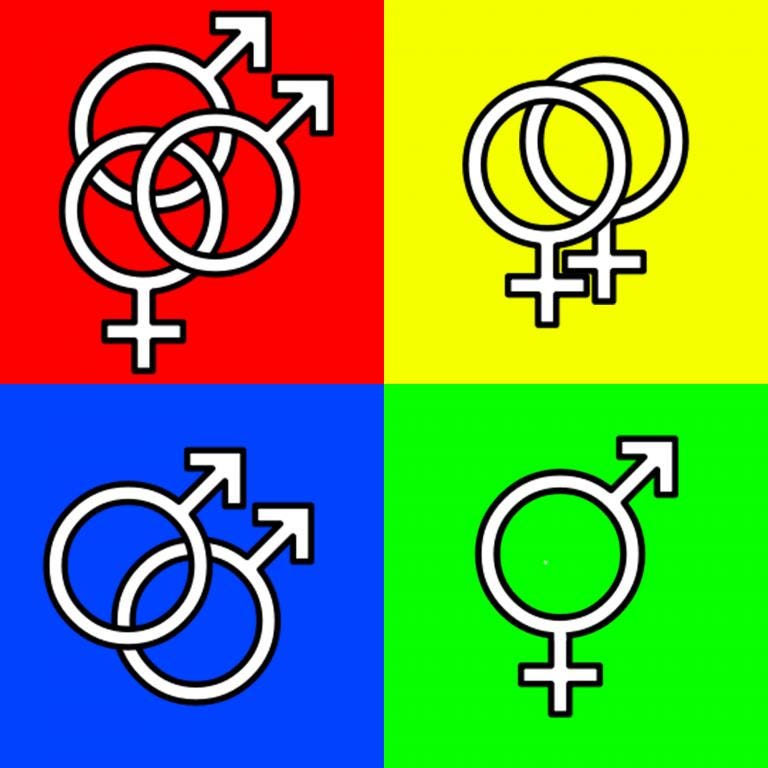
Since the ‘70s, the cold war can therefore no longer be understood as a struggle between Capitalism and Marxism as it was in the McCarthy period. Since the ‘70s, it had turned into a cultural war between two brands of Marxism: Orwellian Revolutionary Marxism (aka Bolshevism) in the East versus Huxleyan Evolutionary Marxism (aka Menshevism) in the West. It didn’t take long for Marxists to realize that the latter was far more succesful.
The age we live in today is not an age that overcame Marxism, but an age that overcame Bolshevism. It’s not Capitalism but a modern variation on Menshevism that thriumps in the Western world today… in its many modern incarnations. And, most importantly: these neo-Menshevik ideologies have no other purpose but to destabilize Western society to preserve and increase the power of the Rothschild dynasty as the head of a covert Aristocracy behind the veils of fake democracy.
It is useless to deny that grave Jewish problems existed in Germany. The nation was in the unfortunate geographical position of being the first stage in the perennial push westward of the Polish Jews. Unless forced on, they tended to stop in Berlin and Hamburg, where they obtained an unduly share of good professional positions.
In Berlin, for example, when the Nazi came to power, 50.2 percent of the lawyers were Jews. In medicine, 48 per cent of the doctors were Jews, and it was said that they systematically seized the principal hospital posts. The Jews owned the largest and most important Berlin newspapers, and they had made great inroads on the educational system.
— Stephen H Roberts, 1937, The House That Hitler Built
But it remained for the Jews, with their unqualified capacity for falsehood, and their fighting comrades, the Marxists, to impute responsibility for the downfall precisely to the man who alone had shown a superhuman will and energy in his effort to prevent the catastrophe which he had foreseen and to save the nation from that hour of complete overthrow and shame. By placing responsibility for the loss of the world war on the shoulders of Ludendorff they took away the weapon of moral right from the only adversary dangerous enough to be likely to succeed in bringing the betrayers of the Fatherland to Justice.
All this was inspired by the princi
